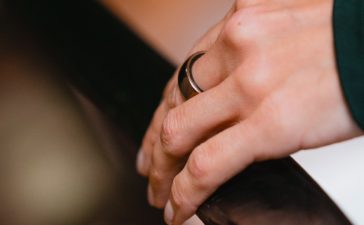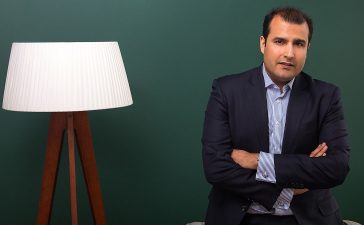His international rugby career ends this autumn, but outhalf Johnny Sexton has already lined up his next move. “I’ll go and see if I can do something in the business world,” Sexton told a press conference last Friday. “I’ve been doing a bit of work experience there over the last few years – one day a week – so I’ll go into that and see how it goes. It might not be for me.”
If the experience of several colleagues is anything to go by, it will be for him. In the world of business Sexton will be lining up alongside Jamie Heaslip and Robbie Henshaw, Keith Earls and Peter Stringer. A likely successor as Irish outhalf, Ross Byrne has already launched his own company, Starfolio, a platform that connects stars with brands. Ronan O’Gara, the former Irish number 10, is among its “stars”.
Sexton has already shown business acumen. Accumulated profits at his company JAS Management and Promotions increased by almost €350,000 to just under €2.8 million in the year to September 30th last. The “one day a week” has been as commercial manager at Ardagh, Paul Coulson’s glass-bottle and tin-can maker, and he has taken part in a €9.8 million fundraiser by Dash, a UK sparkling-water company.
The pathway from rugby pitch to boardroom has always been well trodden. Eugene Davy, a member of the Five Nations Championship winning team of 1926, went on to establish Davy Stockbrokers with his brother James. Anthony O’Reilly, once Ireland’s richest businessman, is the record try-scorer for the British and Irish Lions.
The success of the Irish team since 2014 has opened up even more lucrative commercial opportunities for players, several of whom have set up management companies.
Accumulated profits at Brian O’Driscoll’s ODM & Promotions Ltd exceeded €9 million last year. Co-directed by O’Driscoll’s father Frank, it handles the one-time Irish captain’s earnings from promotions and merchandise. The former No 13 regularly pops up in the business pages of newspapers because of his investments in companies such as Frenchette, a restaurant in Manhattan, Glendalough Distilleries, and Gym + Coffee, a leisure wear brand.
Former forwards Seán O’Brien and Paul O’Connell (who is part of the coaching staff for the Irish men’s team seeking Grand Slam glory this weekend) are others with thriving management companies – the latter’s Nellcon Ltd accumulated profits of almost €2.4 million in 2020.
Top rugby players don’t earn as much as their counterparts in soccer, so they are unlikely to be able to live off savings once they retire. Fintan Drury, the chief executive of Platinum One, a sports management company representing professional rugby players, says: “Even the most successful rugby union players, when they retire at a normal age, have a need, because the remuneration is such that it doesn’t set you up for life. There are only so many people who can make money or have careers as coaches or as pundits, and therefore former players gravitate towards business.”
As with Sexton, preparation for those second careers often begins long before players hang up their boots. “A lot of the guys I knew did business degrees, or degrees in the humanities and moved into business,” says Drury.

“In the early years of professionalism the guys I would have worked most closely with – Gordon D’Arcy, Shane Horgan, Denis Hickie – all of them were full-time professional athletes but working their socks off doing degrees and preparing for life after rugby.
“Denis made a decision to retire early because he wanted to move on and do other things with his life and is now a successful business executive. Shane qualified as a solicitor, went beyond the standard legal training and did postgraduate degrees in law, and is now working in various commercial enterprises.”
The players who swap green jerseys for pinstripe suits tend to be highly qualified. Rob Kearney has a degree in commerce and did an MBA in 2013 when he missed a year’s rugby through injury. D’Arcy has an MBA, as does Heaslip. Although he’s 29 years old and still playing, Josh van der Flier has a first-class honours MBA, having completed a dissertation entitled Consumer Perspectives of Sustainability in the Clothing Industry. Hooker Ronan Kelleher has completed a commerce degree at UCD, while prop forward Andrew Porter is in his first year studying economics at Belfield.
Yvonne Comer, who played on the women’s international team, also has an MBA and is co-founder and chief executive of RugbySmarts, which provides video analytics using artificial intelligence.
[ ‘I don’t miss playing at all’: Rob Kearney on punditry and life after rugby ]
Dr Peter Robbins, a lecturer in DCU, has worked with several rugby players on various masters’ programmes, including D’Arcy, Heaslip and Michael Swift, who played second row for Connacht and then launched Frankman, a male personal-care company. Dr Robbins says these players tend to be high achievers in all sorts of ways, but other factors help them to succeed in business.
“One is clearly demographic – Irish rugby players have generally been through the private school system, and often come from relatively affluent backgrounds and from families who are well networked in business or within the professions,” Dr Robbins says.
“But those things, while helpful, are merely table stakes; what really makes the difference are psychographic factors.
“To succeed at this level in rugby, players have to be tough, tenacious, entrepreneurial in spotting gaps. Their playing experience is like an entrepreneur’s journey. They scan the horizon looking for opportunities, and shape a vision of how things might play out,” Dr Robbins explains.
“They need to be able to sense where their competition is weak. They have to have immense courage to risk everything in the quest for competitive advantage – and sometimes it won’t come off – and they may have to innovate, improvise or pivot when the unexpected happens.”

It didn’t come off for Peter Clohessy, who was declared bankrupt in 2017 owing €13.6 million to creditors, including €7 million to Pepper, an Australian finance company. The prop forward known as The Claw had invested in a number of bar and restaurant businesses that got into trouble.
Shane Byrne, the former hooker, ended up in a High Court dispute with Oxigen Environmental over the operation of AWD Waste Solutions Ltd, which was resolved after he and his brother bought out Oxigen’s share in their family business.
Completing a front row of misfortunes was Frankie Sheahan, also declared bankrupt in 2017, but who is on the upswing again with Pendulum, organiser of an annual business summit. The business recorded pretax profits of €102,779 for 2020.
Having done less grunt work on the pitch, rugby backs tend to gravitate to more glamorous businesses. Ian Madigan is co-owner of Feel Free CBD, while 29-year-old Robbie Henshaw recently agreed a brand partnership with AYA, a vitamin and supplement brand, and co-owns Robton Ltd, an advertising and promotions company, with his father.
Andrew Trimble, the former Ulster and Irish winger, has established Kairos, a sport-tech company whose initial fundraising round was well supported. Tommy Bowe launched the men’s brand XV Kings and the shoe range Lloyd & Pryce in 2014. Also in the rag trade is Jordan Larmour, who is co-founder and director of Sigmoid Apparel, an online clothing retailer.
[ Tommy Bowe still on his game and alert to all possibilities ]
Keith Earls is behind the Eleven14 coffee roasting business in Limerick, while his former Munster colleague Peter Stringer has opened a fitness studio in the Elysian Building in Cork and has an online fitness platform.
Simon Zebo’s Left Wing Productions reported a cash pile of €552,844 in its last set of accounts. Meanwhile, 30-year-old James Lowe has something to fall back on whenever he retires being the co-owner of Crackerjack Toys in his native New Zealand.
Heaslip is the player-turned-businessman with the highest profile. For a time he worked as an account manager in Google HQ, and he is now in Stripe, but it was the early-stage funding he provided to Pointy that really paid off. The retail tech company was sold to Google in 2020 for $160 million (€151 million). He is currently an investor in everything from Manna Drone Delivery to UrbanVolt, the weight-loss venture Limbo and the publisher Lovin Media.

The 95-times-capped Ireland lock had a flirtation with the restaurant business, having backed Bear steakhouse on South William Street. Asked what he had learned from the investment, Heaslip replied: “Don’t do it.” Clearly not listening is James Ryan, the current second row, who has teamed up with restaurant entrepreneur Barry Wallace to invest in the Dash Burger chain.
Rugby players may be more collegiate than their GAA or soccer counterparts, pooling information or even going into business together. Heaslip has linked up with Seán O’Brien and the Kearney brothers, Rob and Dave, in The Bridge and Lemon & Duke pubs. O’Brien, the forward known as the Tullow Tank, is also a shareholder in Kids Speech Lab, a company cofounded by Gordon D’Arcy.
Sexton is likely to leave the playing fields as the Six Nations Championship all-time points scorer, with a former World Rugby Player of the Year title, at least one and possibly two Grand Slams, and maybe even a World Cup winner’s medal from the tournament in France this autumn. Drury believes he will be just as determined to make a success of his post-match career.
“The thing about Johnny, whom I know and represented for a number of years, is that he is a serious man, and when he finishes playing rugby, he will be just as committed to his new life,” Drury says. “He won’t dwell on his previous career, or trade on it. It will be compartmentalised.”












